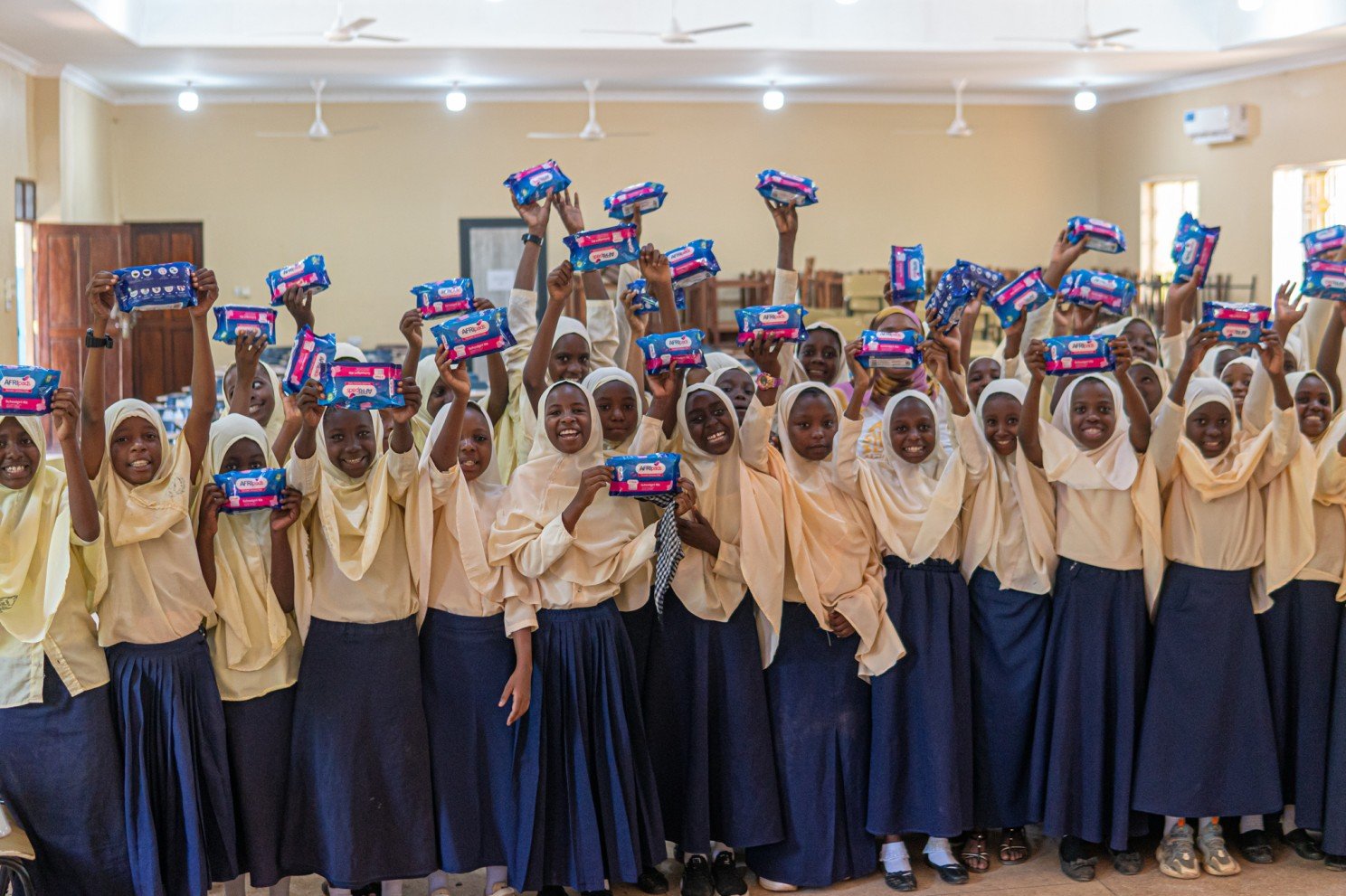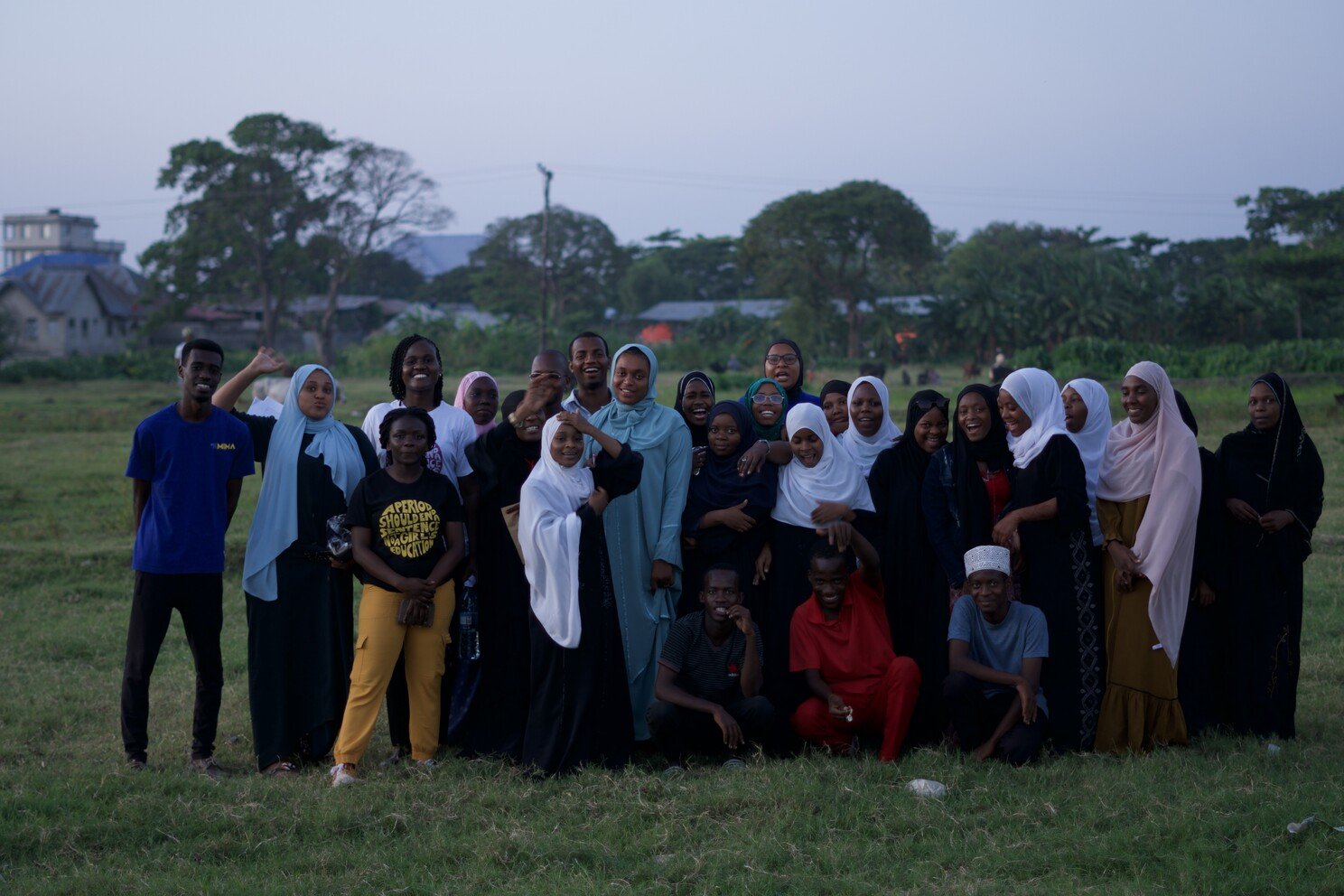Stronger Skills, Stronger Futures
Dear Friends of WAJAMAMA,
Ramadan Kareem! We hope this holy month brings you peace, prosperity, and light. We are proud to share the many milestones we achieved last month and the hard work that went into each accomplishment. From launching new initiatives to strengthening partnerships, every step forward reflects our commitment to excellence and innovation.
Our Reach During February:
✅ 150+ mamas attended Group Care sessions
✅ 24 Group Care sessions conducted
✅ 157 students attended Well-Girl workshops
✅ 10 MIMA facilitators trained on menstrual health and hygiene (MHH), nutrition, and mental health through our Training-of-Trainers (ToT) model
Celebrating International Women’s Day
Every month, more than 2 billion people menstruate globally, yet stigma, high costs of menstrual products, and a lack of water and sanitation facilities drive period poverty. This year’s International Women’s Day (IWD) theme to #AccelerateAction is a call to address the systemic barriers that affect the personal and professional lives of women and girls worldwide.
To commemorate IWD on March 8th, for every subscription we received to our monthly newsletter, we pledged to donate one reusable menstrual kit to a woman or girl in an economically marginalized community in Zanzibar. With just one day remaining until the deadline, we are thrilled to announce that 605 people have subscribed to our newsletter thus far, meaning that more than 600 women and girls will have access to safe, sustainable, and dignified periods. We could not have achieved this without your support – thank you!
Girls at Kizimkazi Primary School hold up reusable menstrual kits that were dispersed during a Well-Girl workshop in January.
Mental Health Matters
Pregnancy can be a very lonely journey, but it does not have to be. We believe that helping mamas assess their relationships and support systems can have a huge impact on their pregnancy journeys, and we want to continue creating a safe and supportive environment to discuss mental health and ways to take care of one’s health during and after pregnancy.
This year, our team has been hard at work to integrate mental health into all our programs, especially our Group Care Model (GCM). Up until now, mental health content, with a particular focus on postpartum depression, has been introduced to mamas during the seventh session of GCM. This year, however, we are piloting mental health content into our GCM starting at the first session, and thus throughout each woman’s pregnancy journey.
In February, a new cohort of mamas in a remote community in the southern tip of Unguja Island began their Group Care journey with us, where they learned how to care for one’s health during and after pregnancy. Mamas also participated in a breathing exercise to manage anxiety and overwhelming thoughts, which was both powerful and emotional. This is just a start, and we are looking forward to creating a space that supports mental health and builds psychological resilience for pregnancy and beyond.
A mama at a public Reproductive & Child Health Clinic writes in her journal during a mental health exercise at GCM.
Ongoing Training to Build Capacity
Recognizing that spaces that encourage holistic wellbeing during pregnancy depend not just on the delivery of care, but also the training of facilitators, WAJAMAMA Clinical Community Facilitators (CCFs) received specialized training in February. As part of their continuous capacity-building, CCFs participated in a refresher training on mental health, equipping them with the updated best practices to support women in GCM and the broader Reproductive Health component. They were also trained to administer a pre- and postpartum depression (PPD) screening tool. The implementation of the PPD screening tool will provide insight into the mental health challenges that women experience during and after pregnancy, and will allow our facilitators to provide close care and refer them through the appropriate channels when needed.
To continue enhancing our approach to strengthening our reproductive health program, we hosted several training sessions this month, including a two-day training for 10 coaches from MIMA which focused on MHH, nutrition, and mental health. This collaboration with MIMA falls under one of our larger organizational goals to incorporate disability and accessibility inclusion into our training. The MIMA coaches who participated in the training have already begun circulating this information to students and adults across Zanzibar, and will continue to do so in the coming months. Similar to the continued mentorship and supervision we provide to our WAJAMAMA facilitators, we will be following the MIMA coaches to provide any additional support and guidance as they implement our new facilitated learning materials in their teachings.
Our sustainable ToT model incorporates evidence-based knowledge and practices to ensure that all facilitators we train disseminate evidence-based information. As we move into March, we’re preparing to recruit new facilitators to expand our impact. Stay tuned for our post!
The WAJAMAMA team and MIMA coaches smiling together after a productive and enriching 2-day training.
Well-Girl Training at the British School
We recently conducted a Well-Girl session at the British School, covering MHH, nutrition, and mental health with our new facilitated learning materials. Reproductive health education does not begin at pregnancy, and we remain committed to creating safe and supportive spaces for young girls and women before pregnancy and beyond.
Is your school or facility interested in receiving a training on MHH, nutrition, and wellbeing? Email marketing@wajamama.com for more information!
A preview of our new facilitated guide on MHH, nutrition, and mental health.
As always, thank you for your continued support. Together, we can achieve our goal of transforming maternal and child health outcomes in Zanzibar, because everyone deserves dignified care and every beginning of life deserves to be healthy and beautiful.
Warm regards,
The WAJAMAMA Team




